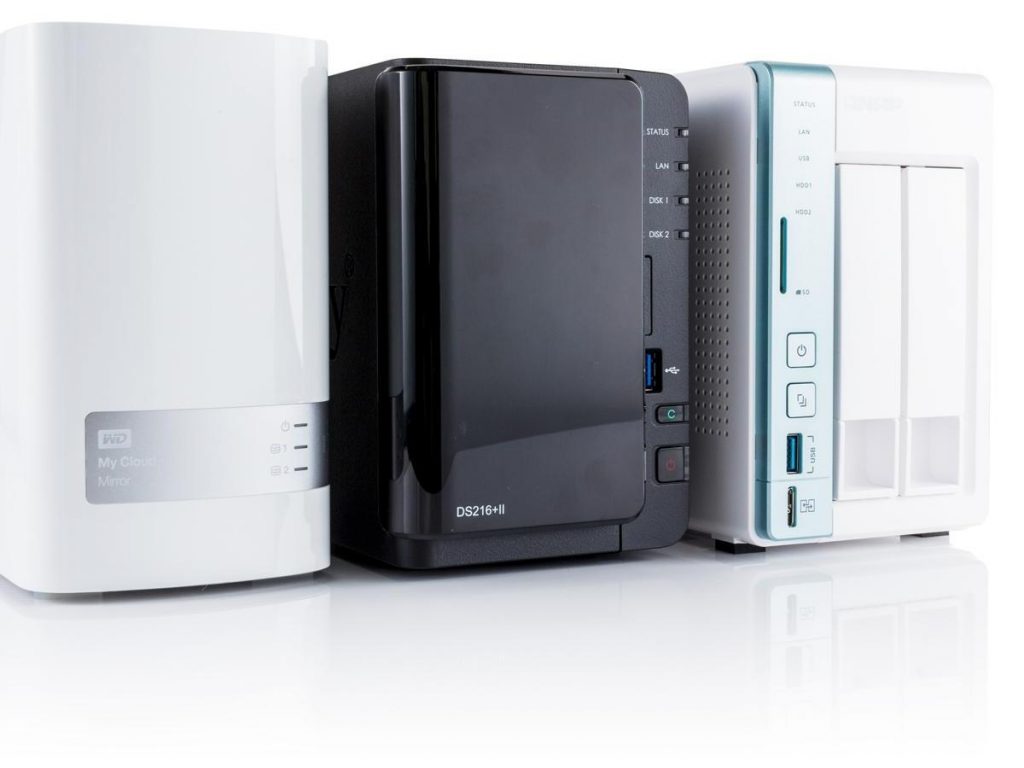When purchasing a network-attached storage (NAS) device, there are usually a couple of things to take into consideration before pumping money into a such a long-term investment. Sometimes, you have to choose between the best NAS brands to buy and other times, your decision will be based on the features of the NAS device. E.G NAS devices that transcode 4K and FHD videos etc.
Some of such features that often influence the choice of NAS device you opt for include picking the best (NAS-optimized) hard drives, to go with disk or diskless models etc. As a beginner in the world of network-attached storages, these things could get particularly confusing. We’d, however, break it down to the simplest bit and help you make the best decision under subsequent headers and paragraphs.
What is a diskless NAS?
Also known as Bring Your Own Drive (BYOD) NAS, a diskless NAS device refers to network-attached storage that does not come out-of-the-box with any storage device (read: drives). Diskless drives allow users configure their NAS boxes with hard drives of choice to whatever capacity they deem satisfactory and in line with their storage needs. Some of the best Diskless NAS drives include the Synology 2 bay NAS Diskstation DS220j.
Pros of Diskless NAS devices
Compared to their counterparts that are sold pre-configured with disks from the manufacturer(s), diskless NAS drives come with their advantages.
1. Freedom: With diskless NAS drives, you aren’t confined to using what the manufacturer specifies or dictates. You can use different sizes and brands of drives that you want; NAS systems that sometimes come with pre-configured disks may not offer you the best in terms of features and storage capacity.
2. Ease of disk replacement: Since diskless NAS boxes permit easy access to drives, it is relatively easier to replace these drives, compared to ‘diskful’ NAS with restricted access to the drives’ enclosure and a factory-only replacement design.
3. Initialization: When a drive is newly installed, diskless drives initializes new drives automatically; NAS with pre-installed disks cannot initialize new drives on their own.
Cons of Diskless NAS devices
Despite their advantages, diskless NAS drives have their downsides.
1. Cost: Compared to NAS drives with pre-installed disks, the cost of setting up a diskless NAS system is usually higher. This is because:
- Diskless NAS are more often more feature-packed than those with built-in disks.
- Makers of NAS system usually negotiate lower prices for drives than what you’d get them for at retail level.
2. Setting up: Unlike ‘diskful’ NAS drives which already have everything installed and pre-configured, setting up a diskless NAS system is more like a Do-It-Yourself process which takes more time to set up — though it could be fun and adventurous,
Before you buy a diskless NAS drive…
Here are some things you should do before making the decision to buy a diskless NAS drive. In no particular order:
- Decide how big you need the server to be.
- Compare the prices of components: It most likely would cost you more to build a diskless NAS system to your ‘taste’ than buying a pre-configured one. Do the maths and decide which one’s best for you based on your financial position. Ultimately, you are in the driver’s seat here.
- Carefully peruse the product specifications and technical features to ensure that it is perfectly in line with your needs. If it/they don’t, check some other diskless models from other manufacturers.
Some of diskless NAS drive options include;

